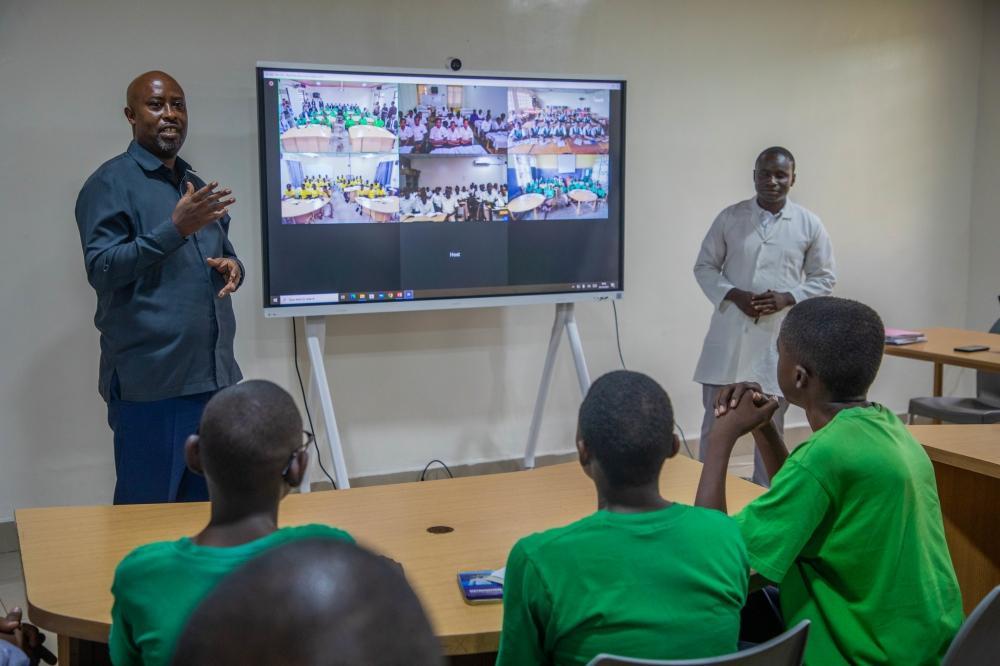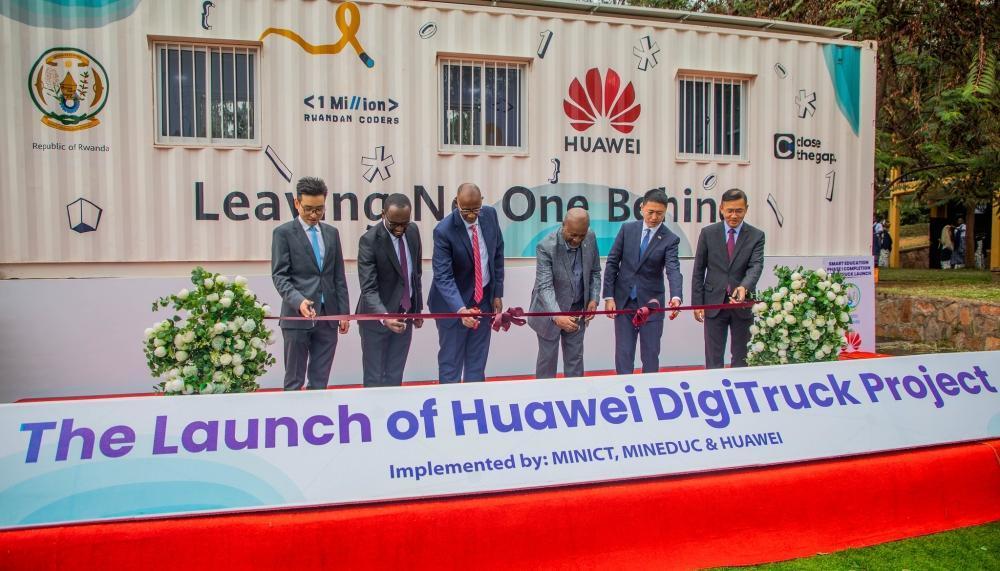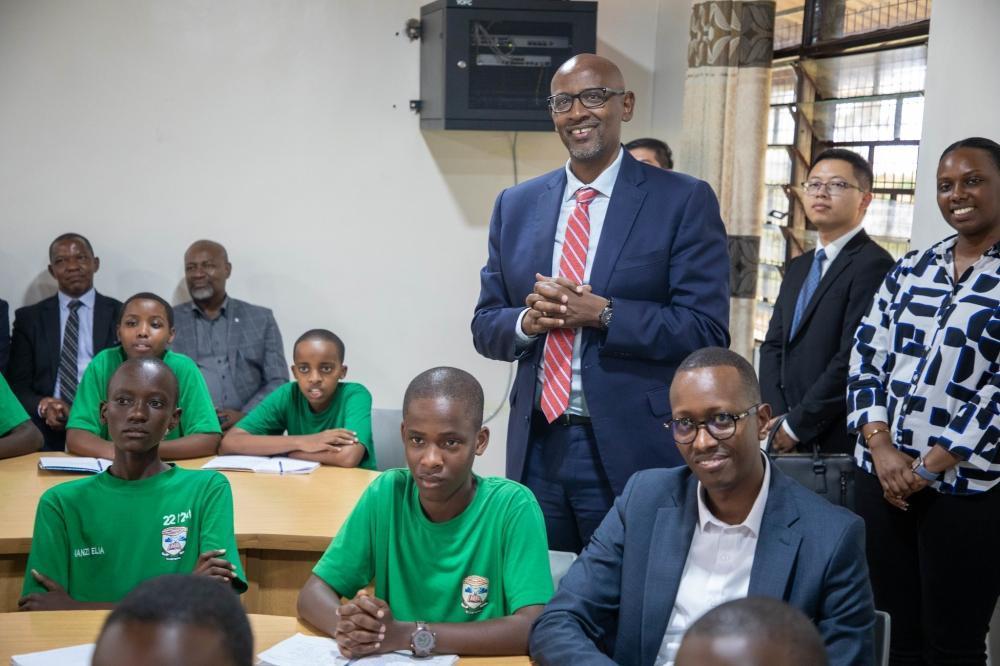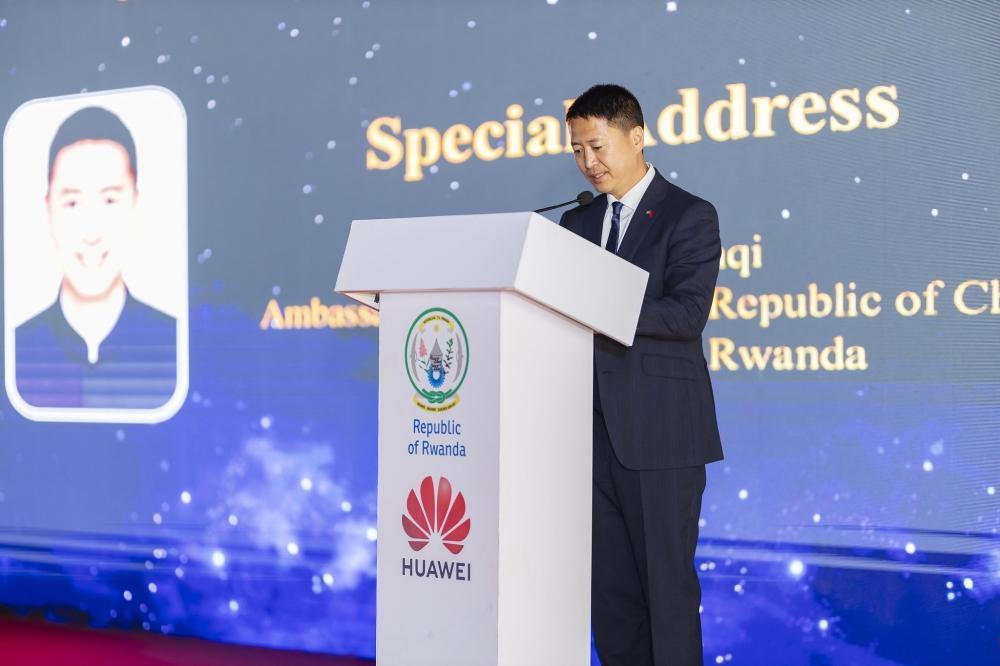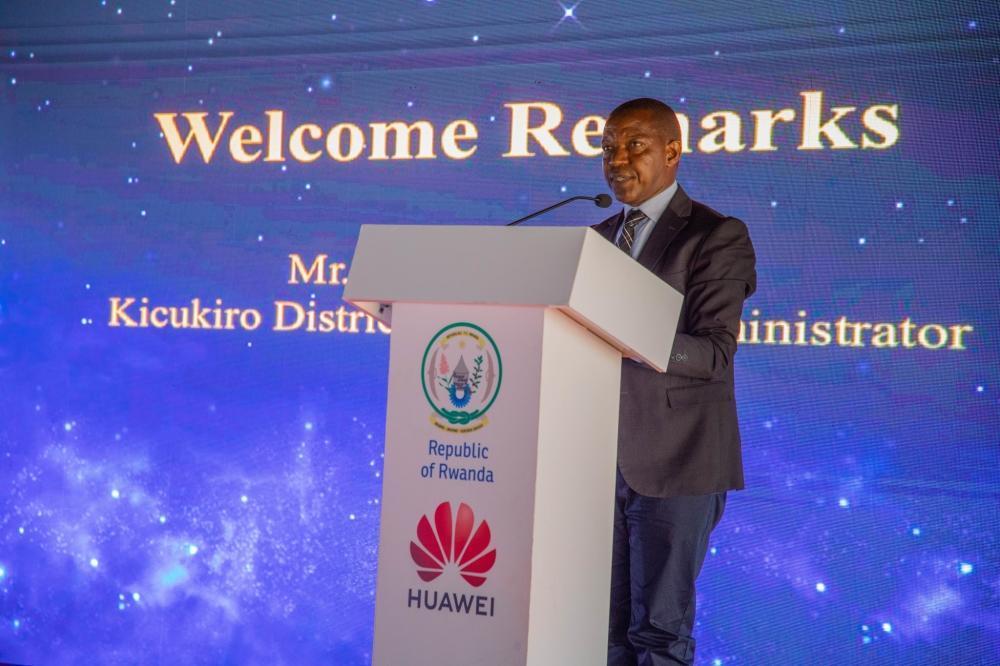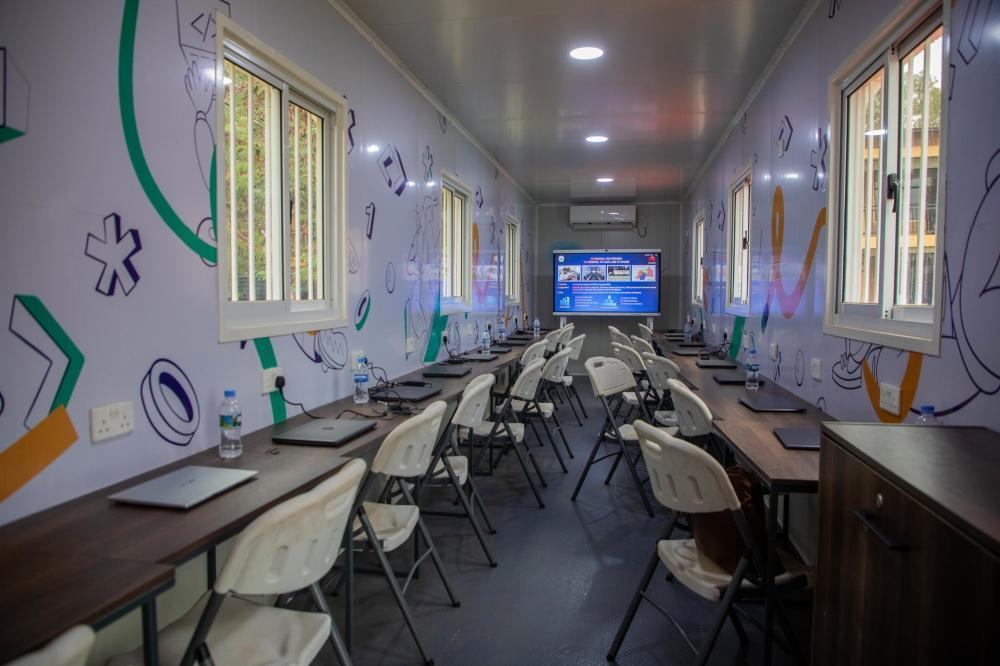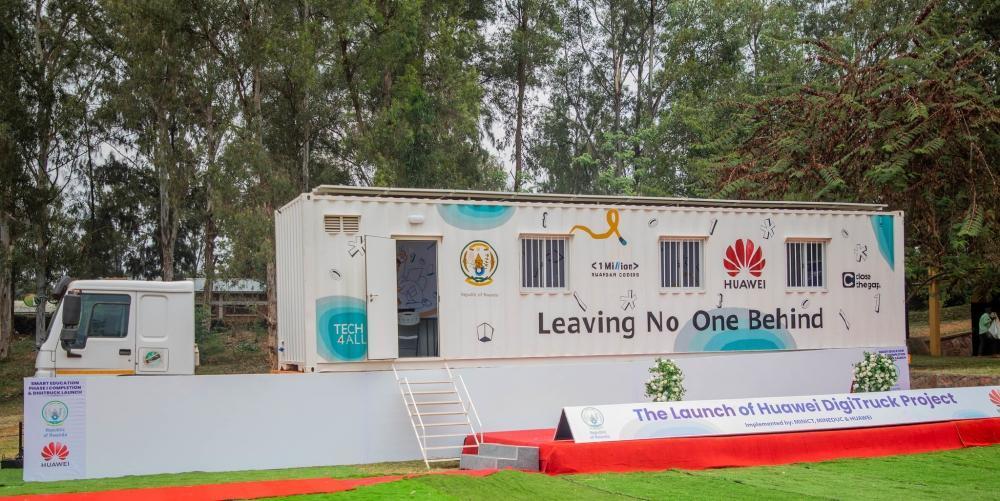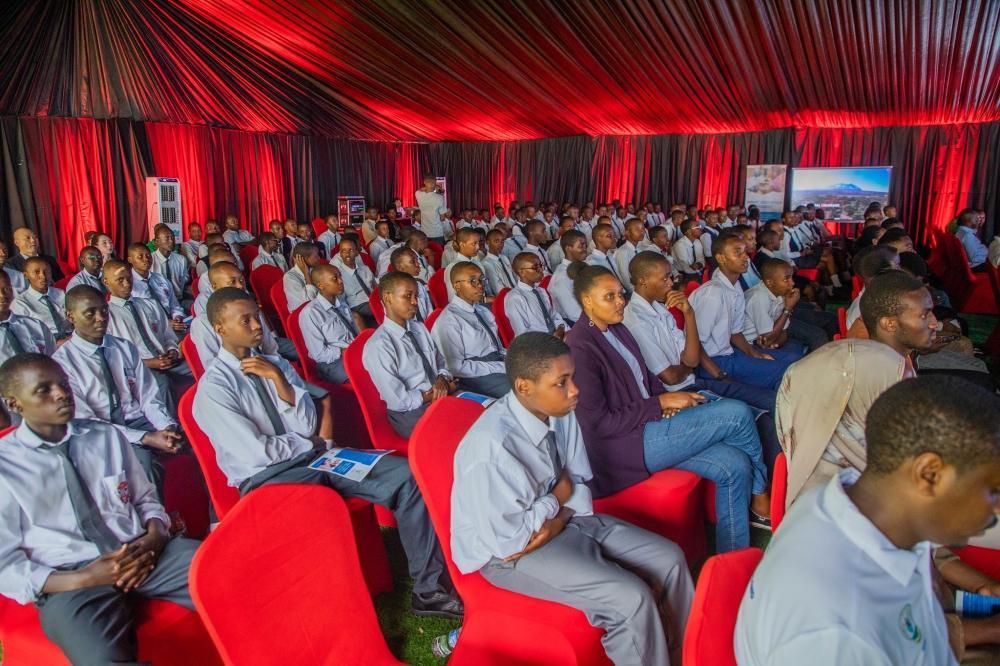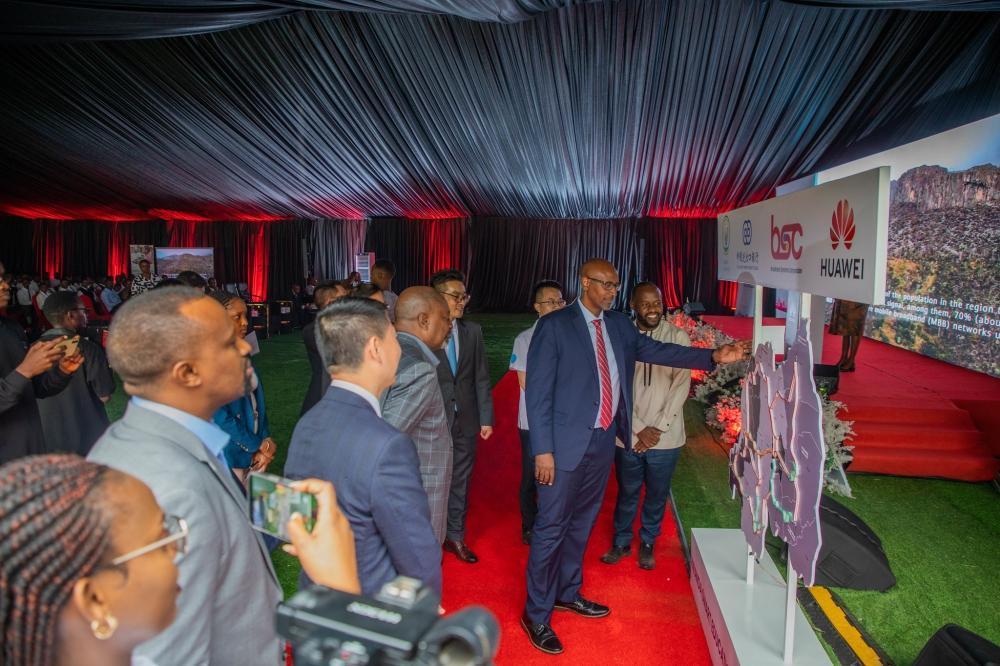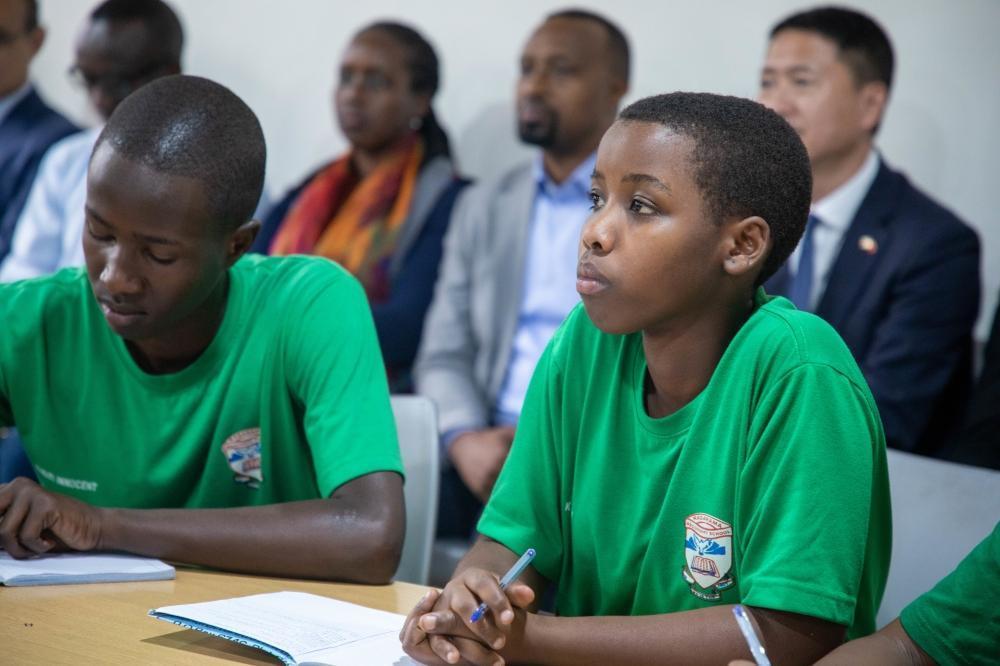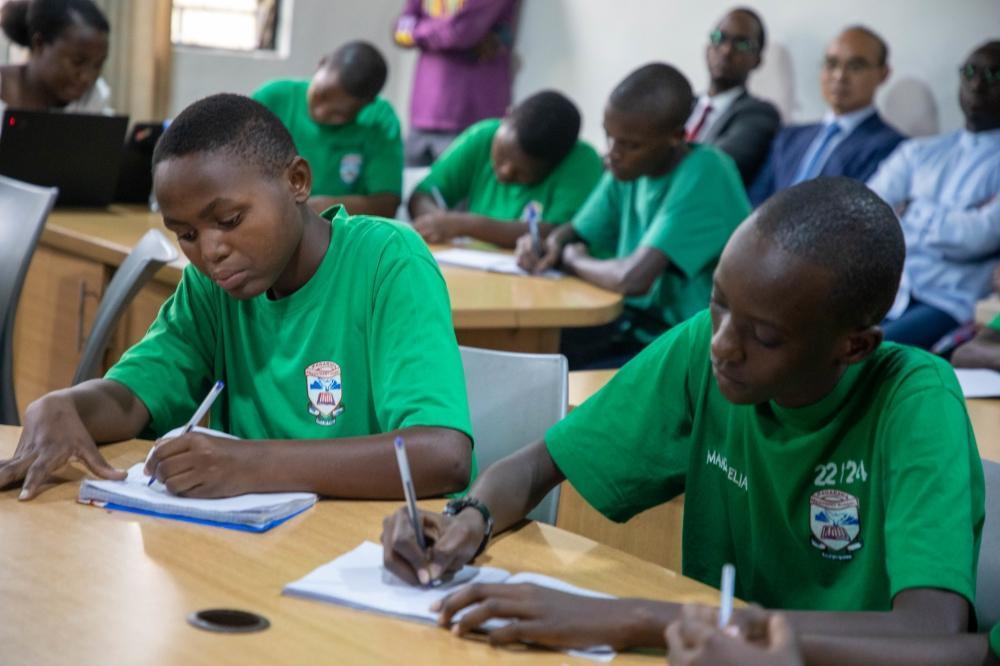Africa-Press – Rwanda. The Ministry of Education, on Friday, October 3, launched the second phase of Rwanda Smart Education which will focus on connecting an additional 2,500 schools, establishing 100 smart classrooms, and setting up a national education cloud platform, extending the benefits of digital learning across the country.
The new phase follows the successful completion of the first phase of the project, which connected 1,500 schools to high-speed internet, established two major data centres, and built a dedicated education communication network to enhance teaching and learning through technology, according to the ministry.
HAPPENING: The Ministry of Education, in partnership with Huawei Technologies, has celebrated the completion of Smart Education Phase I and launched the DigiTruck Project at Kagarama Secondary School in Kicukiro District.
The next phase will expand internet access to 2,500… pic.twitter.com/Q0enI2Fp8L
— The New Times (Rwanda) (@NewTimesRwanda) October 3, 2025
During the launch, virtual class sessions were conducted as a demonstration at Kagarama Secondary School in Kicukiro District, College St. André in Nyarugenge, Gihundwe in the Western Province, Muhe Secondary School in the Northern Province, G.S. Rwimiyaga in the Eastern Province, and G.S. Marie Merci Kibeho in the Southern Province.
The officials aimed to test the quality of internet connectivity, which proved effective.
Bella Rwigamba, Chief Digital Officer at the Ministry of Education, noted that concerns about whether a single teacher can handle five classes at once and fears that this could lead to widespread unemployment, are unfounded. Instead, she said, this is an opportunity to enhance educational capacity and promote smart learning, as both teachers and students learn from one another.
“This will facilitate Continuing Professional Development (CPD) and peer training. They will be learning from one another virtually. This will raise our overall level of education as everyone progresses together,” she noted.
The Smart Education project is being implemented in partnership with Huawei Technologies and is financed by a concessional loan facilitated by the China International Development Cooperation Agency of China.
Minister of Education Joseph Nsengimana, Chinese Ambassador Gao Wenqi, and other government officials cut the ribbon at the launch of Rwanda Smart Education.
The event also launched the DigiTruck Project, a mobile, solar-powered classroom equipped with laptops, internet access, and digital learning devices. The DigiTruck, will travel across all 30 districts of Rwanda, bringing free, tailored digital skills training to underserved communities, including out-of-school youth, girls, and farmers.
Jin Jinqing, the Managing Director of Huawei Technologies Rwanda Ltd. noted that with support from the Ministry of Education, Huawei has helped establish a nationwide education network and advanced data centre, connecting over 1,500 schools, including 270 in remote areas.
“This achievement provides nearly 1.5 million Rwandan students, from Kigali to rural communities, with equal access to high-quality educational resources,” he said.
He emphasised that the progress is not just about numbers. However, it means that a student in Kigali can now share a science lesson with others virtually.
“A girl in a remote village can explore the world’s most advanced knowledge with a tablet in her hands. These are the real impacts of digital inclusion-bridging distances, breaking barriers, and giving every child the chance to dream bigger,” he noted.
Joseph Nsengimana, Minister of Education, interacted with students during a virtual class demonstration at Kagarama Secondary School in Kicukiro District on Friday, October 3. All photos by Craish Bahizi.
Joseph Nsengimana, the Minister of Education, said the initiative aligns well with the National Strategy for Transformation II (NST2), which seeks to train one million Rwandans in digital skills.
“Over the next three years, more than 5,000 citizens will directly benefit from this innovative approach, ensuring that even the most remote populations are equipped with essential digital literacy skills,” he said.
Nsengimana pointed out that these initiatives strengthen international cooperation, promote digital equity, and advance sustainable national development.
“Let us reaffirm our resolve to ensure that no Rwandan is left behind in the digital transformation journey. Let us continue to invest in innovative and inclusive solutions that empower our youth and communities with the knowledge and skills they need to thrive in the 21st century,” he added.
Shadrach Tumusime, a senior six science student, commended the initiative, noting that it brings them to international levels.
“We can only reach an international level because we are able to apply these tools. Technology is absolutely necessary, not just in schools but also on the job market. We need this, and it can put us on a competitive level,” he said.
Chinese Ambassador to Rwanda, Gao Wenqi, speaks at the launch of Rwanda Smart Education on Friday, October 3.Photos by Craish Bahizi
Kicukiro District Mayor, Mutsinzi Antoine, delivers remarks at the launch of Rwanda Smart Education on Friday, October 3. Photos by Craish Bahizi
The DigiTruck Project is a solar-powered mobile classroom with laptops, internet, and digital learning tools.
For More News And Analysis About Rwanda Follow Africa-Press

